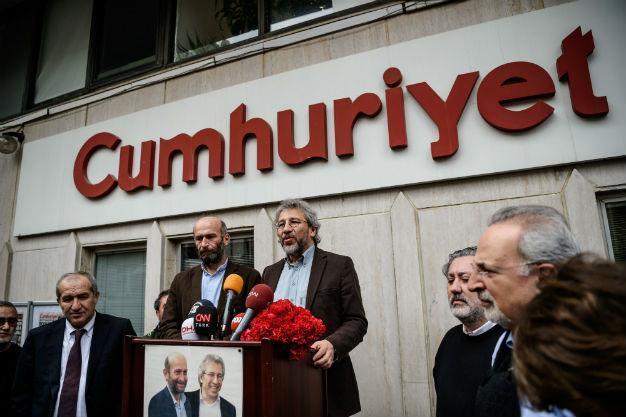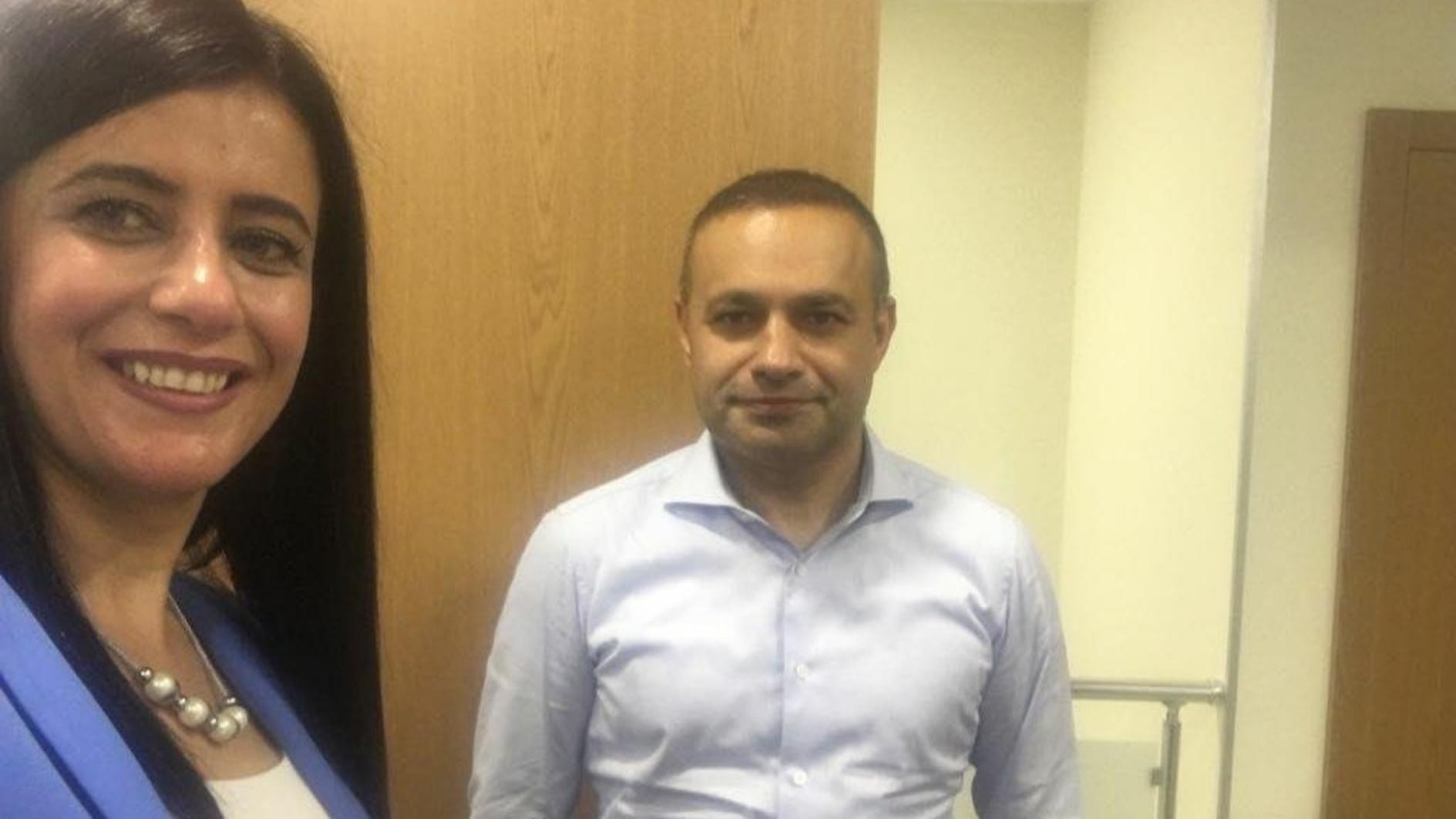Opposition furious at Erdoğan’s remarks on top court
ANKARA

AFP photo
Turkey’s opposition parties have expressed their fury over remarks made by President Recep Tayyip Erdoğan, who said he had “no respect” for a recent Constitutional Court decision on two arrested journalists, while the ruling Justice and Development Party (AKP) has stood by the statement.“Next week, an appeal against the local court’s decision to release [the two journalists] will be discussed. The president says, ‘The local court should insist on its decision.’ This is a direct order for those who will next week discuss the appeal. The statement [by Erdoğan] is beyond advice, it is an instruction. We define these remarks as the ‘second Feb. 28 coup,’” Özgür Özel, the deputy parliamentary group chair of the main opposition Republican People’s Party (CHP), said at a press conference on Feb. 28, referring to the “Feb. 28 process” which eventually led to the notorious military intervention of Feb. 28, 1997, often described as a “post-modern coup.”
Erdoğan criticized the recent Constitutional Court ruling that paved the way for the release Cumhuriyet editor-in-chief Can Dündar and the daily’s Ankara bureau chief, Erdem Gül, saying he “does not accept or respect” the decision and vowing not to “obey” it.
“This incident has nothing to do with freedom of expression, it is a case of spying,” Erdoğan said on Feb. 28, regarding the top court’s ruling on Dündar and Gül.
Speaking at parliament during deliberations over the 2016 Central Governance Budget Law earlier on Feb. 28, the AKP’s deputy parliamentary group chair, Bülent Turan, said all judicial decisions could be criticized.
“Mr. President has criticized the Constitutional Court’s decision. We are criticizing [it] too,” Turan said, recalling that individual access by citizens to the Constitutional Court, which led to the two journalists’ release, came into effect in September 2012, as part of a set of government-led reforms voted on in the Sept. 12, 2010, referendum and carried out as part of Turkey’s bid for full EU membership.
Yet, in late November 2015, while outlining his newly elected government’s program in parliament, Prime Minister Ahmet Davutoğlu announced: “In the face of possible harm to the Constitutional Court’s performance by the extreme workload that individual applications has brought it, we will review this practice of individual access.”
The Constitutional Court has long been targeted by the AKP over its rulings given to individual complaints. The court’s public visibility has grown due to a series of high-profile rulings it has delivered, such as its April 2, 2014, lifting of the government-supported block on access to Twitter.
“These remarks [by Erdoğan] are yet another blow on the Republic of Turkey, its institutions and its rules and they are encouraging anarchy and unlawfulness,” said Erkan Akçay, the deputy parliamentary group chair of the Nationalist Movement Party (MHP).
Çağlar Demirel, the deputy parliamentary group chair of the Peoples’ Democratic Party (HDP), said they didn’t “recognize” Erdoğan’s remarks.
“Today, the decision about Can Dündar and Erdem Gül is a joyful one. Describing this as a coup is a shame for Turkey,” Demirel said.
















